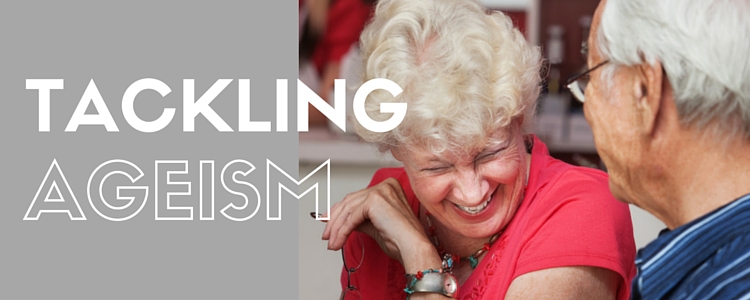Ageism in Ireland: Tackling the Issue
Posted on 30th June 2016

‘I don’t want to belong to any club that would accept me as a member’ said the American comedian Groucho Marx over forty years ago. A lot of Irish older people seem to agree with Groucho, because they don’t want to be seen as part of the grey brigade, and go out of their way to appear younger than they are.
In many ways you can’t blame them. Being older is usually seen negatively by many, including young people, media, the health service, and sometimes by older people themselves.
Ageism is a prejudice against older people because they are old, and while racism and sexism is now regarded as politically incorrect, ageism seems to slide under the radar. How else can we accept as normal that older people on television are typically cast as dozy dependants, helpless victims or crotchety troublemakers? Look at the words we use to describe older people: old fogies, bed blockers, grannies, old dears and ‘the elderly’. (Whenever you hear a group described with the definite article at the start as in ‘the disabled’, ‘the poor’ and so on, you know the aim is to distance the rest of us from that group, and so separate and marginalise them).
Of course ageism cuts both ways. Not all older people are wise, caring or kind. Some have a lot in common with BBC’s irascible Victor Meldrew and the initially proud and stiff-necked Miss Daisy who refused to be driven. If you are a difficult young person, you may grow into a difficult older person – though sometimes life can teach and mellow us.
There are all kinds of myths about being older in Ireland. One is that the majority of older people live in nursing homes. In fact, just six per cent of over 65s are in residential care, very different from the stereotype. Much prejudice is based on ignorance, and ageism is no different. It thrives because of the segregation between the generations. We help to combat ageism when we mix with people of different generations, and get to know each other. Third Age’s Operation Conversation Intergenerational Walk on October 1 2015 International Day of Older Persons was an example of this. On a lovely autumn day at DCU Age Friendly University, the generations walked and talked together. And we all benefitted. Our Operation Conversation Walk is now an annual event.
Ageist behaviour involves talking down to older people, according less weight to their opinions, needs and beliefs and taking their health and welfare needs less seriously. Ageist attitudes can also include seeing paid work as the only work of value, a complete myth because if volunteers in Ireland downed tools tomorrow, the country would grind to a halt. Ageism also equates physical beauty with youth. For this suggestion I have only two words: George Clooney. He was 55 on May 6th. And another two: Helen Mirren. She will be 71 in July.
So the reality is very different from the stereotype. The truth is that older people are part of the demographic bounty available to Ireland in 2016. Never before have we lived so hopefully or so long. Today older people are continuing to contribute as workers, parents, grandparents, neighbours, friends, mentors, coaches, volunteers and social activitists. And silver-haired screen heart throbs. So while active independent lives are the reality for many older people, this is often not acknowledged, allowing our society to continue to hold many often unconscious negative attitudes to ageing.
The point of all this is the stereotype. Ageism is fuelled by the creation of stereotypes. A stereotype is a generalisation, which gives to particular group characteristics, which are simplistic and unrepresentative. Stereotypes are often used to justify discrimination.
Age discrimination damages us all. It allows us to overlook the resources that older people offer, it allows us to patronise and exclude them, thereby creating a less just society. Most of all, it allows us to deny the reality that one day we will all grow old, and can create a self-fulfilling prophecy - the kind of life I fear I may have when I grow older is more likely to happen unless stereotypical attitudes are challenged now.
It’s been said that an age-friendly society is friendly to all ages. And it’s true.


